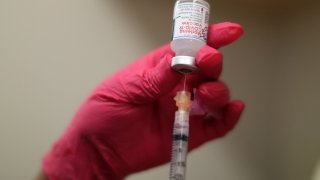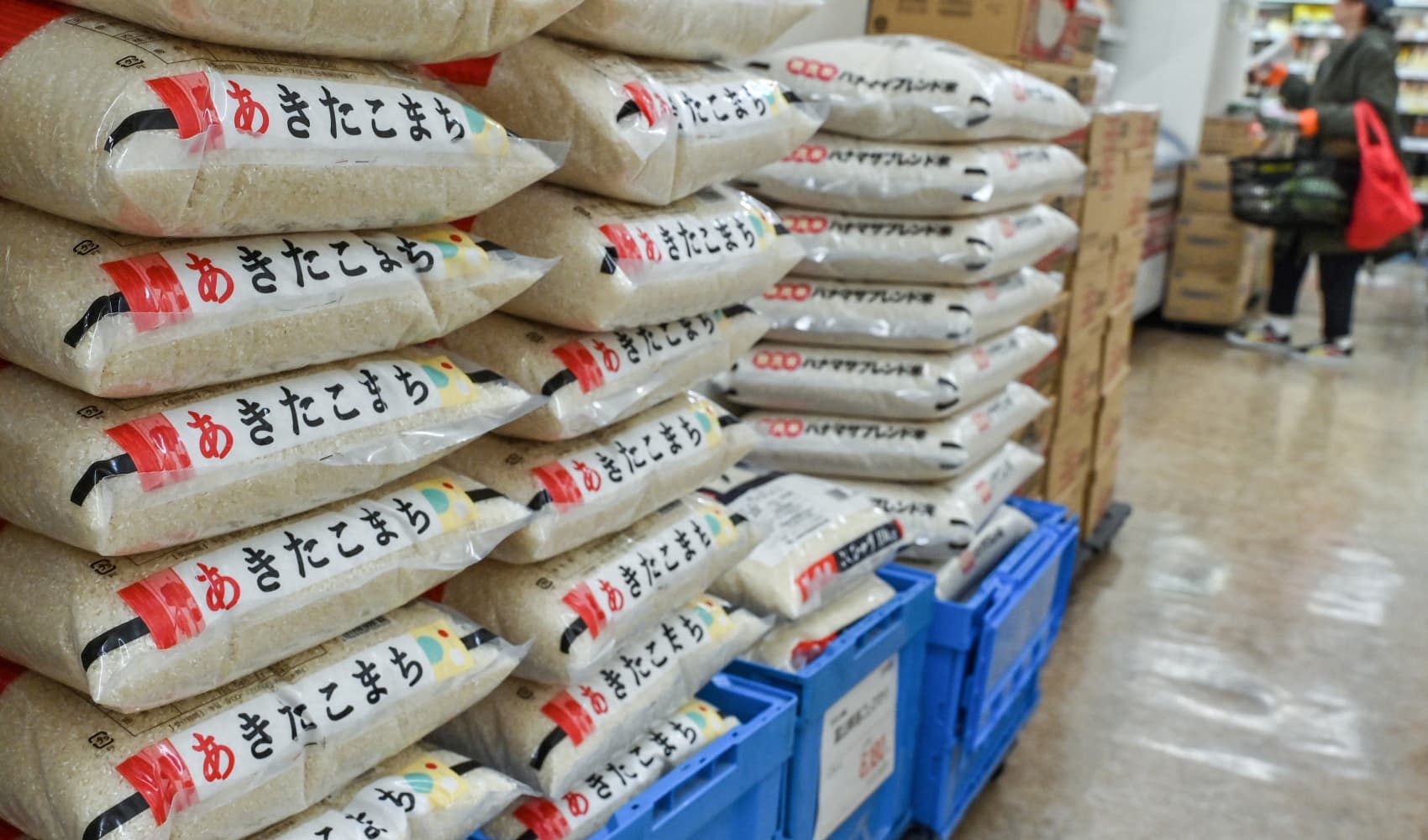
- The National Institutes of Health has started testing a new coronavirus vaccine from Moderna designed to protect against a problematic variant first found in South Africa.
- The phase one trial will test how safe and effective the new shot is against the variant in approximately 210 healthy adults.
- Researchers expect the trial to be fully enrolled by the end of April.
The National Institutes of Health has started testing a new coronavirus vaccine from Moderna designed to protect against a problematic variant first found in South Africa, the agency said Wednesday.
The phase one trial, led and funded by the NIH's National Institute of Allergy and Infectious Diseases, will test how safe and effective the new shot is against the variant — known as B.1.351 — in roughly 210 healthy adults, according to the agency.
The trial, which has already administered some of its first shots, will include approximately 60 adults who participated in Moderna's original Covid-19 vaccine trials last year, as well as approximately 150 people who haven't received any Covid-19 vaccine yet, according to a statement.
The returning participants who were given two shots of the original vaccine 28 days apart at varying doses early last year will split up.
Money Report
Some of them will be given a single booster shot with the new vaccine at a higher dose while some will receive the new vaccine at a lower dose, the statement said. The remaining participants will be offered a booster shot with the original vaccine "as part of a separate clinical trial protocol."
Researchers will take blood samples from participants throughout the trial that can be tested against other circulating strains of the virus to determine whether the vaccine produces an immune response.
The trial will recruit volunteers in the Atlanta, Cincinnati, Seattle, and Nashville, Tennessee, areas and should be fully enrolled by the end of April, the agency said.
The B.1.351 variant first discovered in South Africa late last year has given scientists more cause for concern compared with other variants. The variant appears to spread easier than the "wild type" original strains, and research indicates it can possibly evade some of the protections generated by therapeutics and vaccines.
So far, there have been 312 Covid-19 cases with the B.1.351 variant identified in the U.S., according to the latest data from the Centers for Disease Control and Prevention.
"Preliminary data show that the COVID-19 vaccines currently available in the United States should provide an adequate degree of protection against SARS-CoV-2 variants," NIAID Director and White House chief medical advisor Dr. Anthony Fauci said in a statement.
"However, out of an abundance of caution, NIAID has continued its partnership with Moderna to evaluate this variant vaccine candidate should there be a need for an updated vaccine," Fauci said.
The U.S. Food and Drug Administration has previously said it will expedite the authorization process for the updated vaccines that target the troublesome variants, eliminating the need for lengthy clinical trials.
However, an independent safety monitoring committee will continue to oversee the trials to ensure the shots are safe, the NIH statement said.






